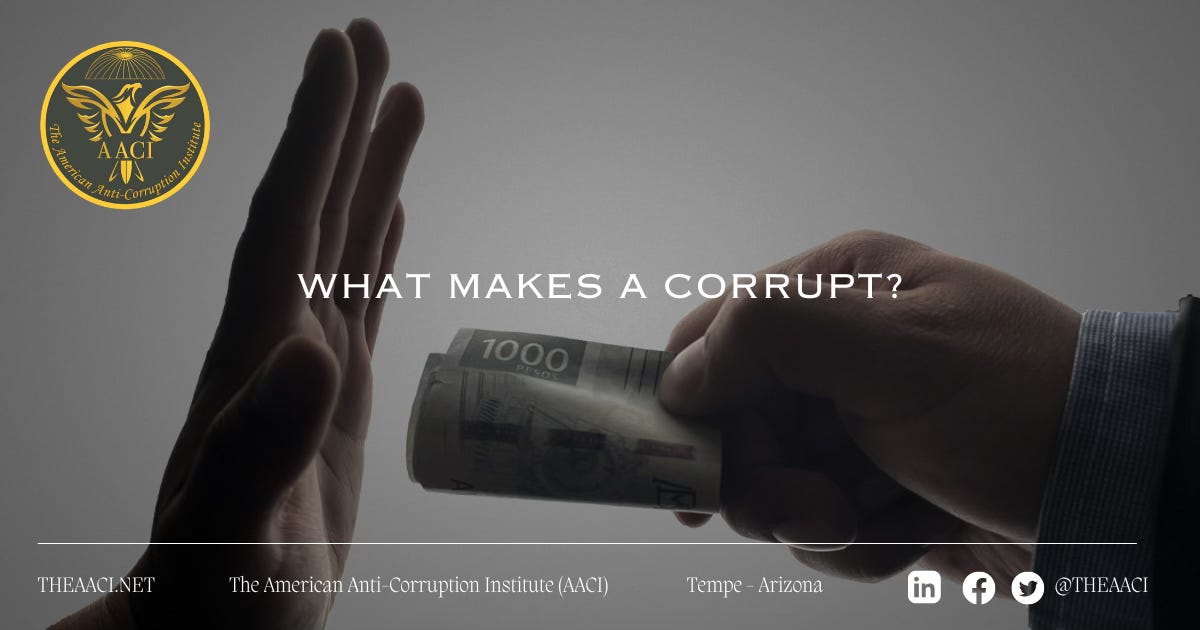What Makes a Corrupt?
Corruption is a subject that has fascinated scholars, policymakers, and the public alike for centuries. While we may never have a universally accepted answer to the question of what exactly "turns someone corrupt," some recurring themes are worth exploring. In this post, we want to share our take on the motives and opportunities that lead individuals to engage in corruption. But we must stress from the outset that we do not have a conclusive answer. We are eager to hear your thoughts, perspectives, and experiences to help deepen our collective understanding of this complex issue.
One universally accepted point is that less than 10% of individuals will not engage in corruption under any circumstances. These people have a strong moral compass that they would never compromise their integrity, regardless of the circumstances. However, most people may find themselves swayed by the temptations of corruption, particularly when they believe they will face no consequences for their actions. This is where the opportunity arises: corruption becomes a real possibility when accountability is absent and individuals perceive themselves as above the law.
It is essential to note that the lack of accountability is not always a deliberate disregard for ethical behavior. Instead, people adjust their behavior in environments where transparency is lacking and when accountability systems are weak or non-existent. They may begin to rationalize corrupt acts by telling themselves that everyone else is doing it or that nothing will happen to them.
The absence of accountability fuels the normalization of corrupt behaviors. When the system fails to hold people accountable, corruption can shift from an exceptional act to a social norm. In this context, individuals may need to engage in corrupt practices to “fit in” with the prevailing culture. Over time, social values and norms evolve to accommodate this new reality, where corruption becomes a part of the system rather than an aberration.
The key driver here is the perception of impunity—the idea that one’s actions will not be scrutinized or punished. Without accountability and a firm adherence to the rule of law, corruption becomes more than just a risk; it becomes a feasible, even desirable, course of action for some individuals.
But again, we do not claim to have all the answers. This is a multi-faceted issue, and we look forward to your thoughts. What do you think? Can corruption be seen as a natural response to specific opportunities? What other factors influence someone to engage in corrupt acts? We are eager to hear your feedback and ideas so that we can continue this crucial conversation.
Photo by Jesus Monroy Lazcano on Unsplash


